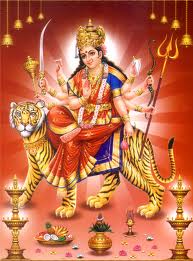|
|
|
|
 The universe that we see and experience is a bundle of energy,
both packed and unpacked. This is the discovery of modem
science, which incidentally, has demolished the distinction
between matter and energy. According to it, there is one basic
energy behind all forms of matter and energy. However, it seems
to be still far off from discovering the relationship between
matter on the one hand, and, mind and life on the other. Are
they also, though apparently poles apart, manifestations of the
same basic energy? Could it be that the same energy or matter,
at one level of vibration is called 'matter', at another, 'mind'
and yet another, 'life'? Modem science or the modem scientists,
devoting most of their attention to the manifest material
universe may not even be prepared to concede this possibility!
Hindu philosophy, based on the Vedanta and a group of works
based on the Vedanta and more commonly known as the Tantras
postulates exactly this! The source and sustenance of all
creation, whether at the level of matter or life or mind, is one
and one only. It is Sakti (energy). Brahman (the Absolute) of
the Vedanta and Sakti or DeVI of the Tantras are identical. When
that 'energy' is in a static condition, with neither evolution
nor involution, when the universe to be created is not even in a
seed-form as it were, it is called Brahman. When it starts
evolving into this creation, sustains it and withdraws it back
into itself, it is called Sakti. If Brahman is the coiled
serpent in sleep, Sakti is the same serpent in motion. If
Brahman is likened to the word, Sakti is its meaning. If Brahman
is like fire, Sakti is its burning power. The two are
inseparable: one in two and two mone. The universe that we see and experience is a bundle of energy,
both packed and unpacked. This is the discovery of modem
science, which incidentally, has demolished the distinction
between matter and energy. According to it, there is one basic
energy behind all forms of matter and energy. However, it seems
to be still far off from discovering the relationship between
matter on the one hand, and, mind and life on the other. Are
they also, though apparently poles apart, manifestations of the
same basic energy? Could it be that the same energy or matter,
at one level of vibration is called 'matter', at another, 'mind'
and yet another, 'life'? Modem science or the modem scientists,
devoting most of their attention to the manifest material
universe may not even be prepared to concede this possibility!
Hindu philosophy, based on the Vedanta and a group of works
based on the Vedanta and more commonly known as the Tantras
postulates exactly this! The source and sustenance of all
creation, whether at the level of matter or life or mind, is one
and one only. It is Sakti (energy). Brahman (the Absolute) of
the Vedanta and Sakti or DeVI of the Tantras are identical. When
that 'energy' is in a static condition, with neither evolution
nor involution, when the universe to be created is not even in a
seed-form as it were, it is called Brahman. When it starts
evolving into this creation, sustains it and withdraws it back
into itself, it is called Sakti. If Brahman is the coiled
serpent in sleep, Sakti is the same serpent in motion. If
Brahman is likened to the word, Sakti is its meaning. If Brahman
is like fire, Sakti is its burning power. The two are
inseparable: one in two and two mone.
In the Hindu mythological literature, as also in the Tantras,
this energy is always pictured as a female deity, the Devl, as
the consort of its counterpart male deity. Each member of the
Trinity has his Sakti or DeVI as his consort: Sarasvatl of
Brahma, Laksml of Visnu and Parvatl of Siva. However, the
mother-cult that has evolved over the last few centuries, is
predominantly centred round Parvatl, the consort of Siva.
Mother-worship and mother-cult are not alien to the Vedic
religion as some suggest. The concept of Aditi, the mother of
gods, personification of nature and the Ambhrnisukta as also the
Ratrisukta of the Rgveda clearly contain the origins of
mother-worship.
|
| |
|

